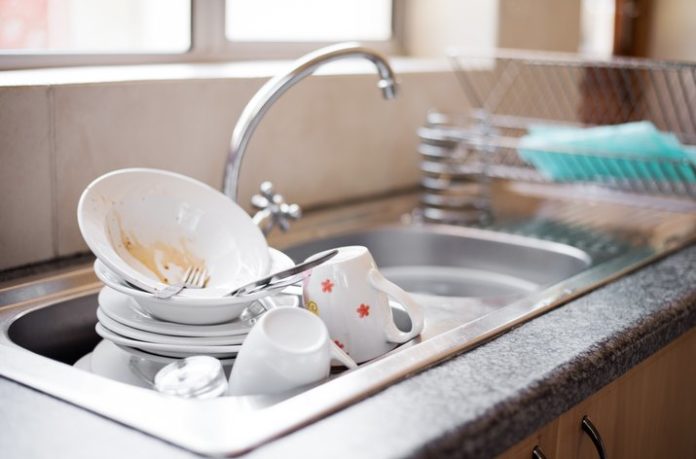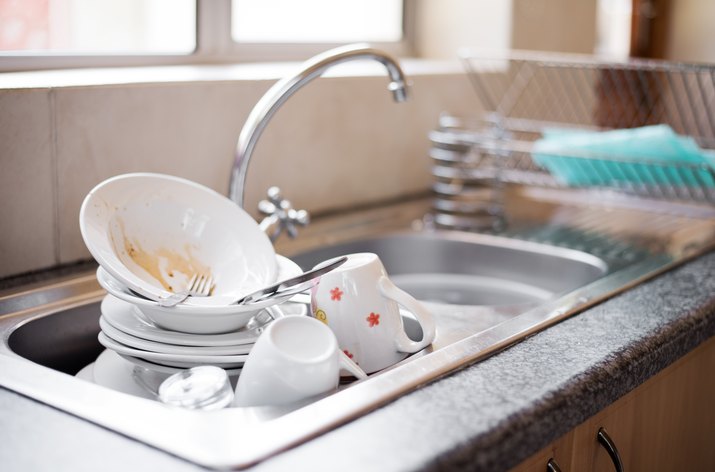
There are probably people out there who love nothing more than washing dishes … but we've never met them. Once you've pulled on the rubber gloves, you have two goals: Get those dishes completely clean and do it as quickly as possible. With some simple but brilliant hacks, dish washing is about to become even easier. It might just become one of your favorite chores.
NickyLloyd/E+/GettyImages
1. Use the Plastic Basin Method
Do you want to conserve water? Hand washing dishes under a running faucet isn't the way to do it. Instead, keep a small plastic basin on hand. Fill it with warm, soapy water and wash individual items in the basin. This is also a great way to let especially dirty dishes soak without filling up your entire sink – just stick the basin on the counter.
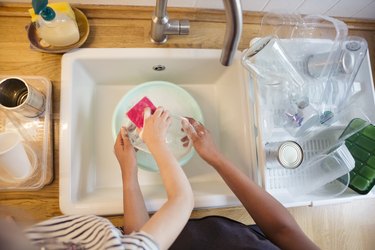
Video of the Day
2. Banish Grease With Vinegar
If there's anything vinegar can't clean, we haven't found it yet. When it's combined with baking soda, simple white vinegar develops cleaning superpowers. Try them the next time you're cleaning a pot or pan containing a greasy, stuck-on mess. Sprinkle the surface with baking soda, pour in enough vinegar to make it fizz and scrub away.
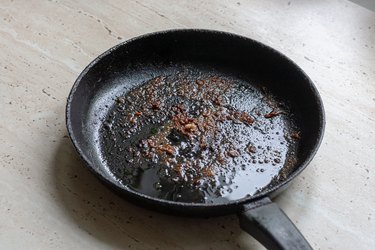
3. Clean Cast Iron With Salt
Cast iron is notoriously difficult to clean, but don't let that keep you from using your cast iron pans. Coarse salt acts as a gentle abrasive that's perfect for removing debris. Start with a warm pan and pour in enough salt to mostly cover the bottom. Scour the pan with a sponge or folded towel, rinse the pan and immediately dry it completely to prevent rusting.
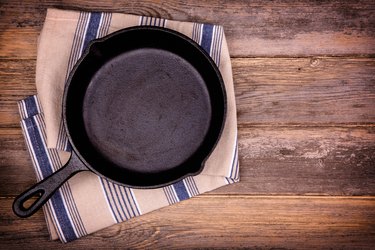
4. DIY a Drying Rack
Your hand-washed dishes will take forever to dry if they're piled together on a drying mat. Instead of shelling out for a new drying rack that will take up valuable counter space, grab a cookie-cooling rack or one of the racks from your oven. Balance it over the sink and let dishes dry on top of it.

5. Wash From Cleanest to Dirtiest
If you approach dish washing by grabbing whatever dirty dish is closest to the sink, it's time to become more strategic. Start with the cleanest items first and work up to the dirtiest things last. This saves you from using more dish soap than necessary and from transferring residue onto cleaner dishes.
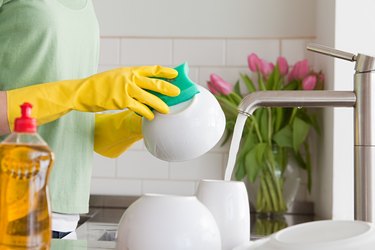
6. Let Glasses Dry on Chopsticks
When the drying rack is already full or if it's too precarious for your delicate drinking glasses, you may opt to dry glasses on the counter instead. If they are facing up, they'll end up streaky from pooled water. If they are face down, they can't dry out. Place a few chopsticks on a dish towel and rest glasses face down on top of them to let water drain out.
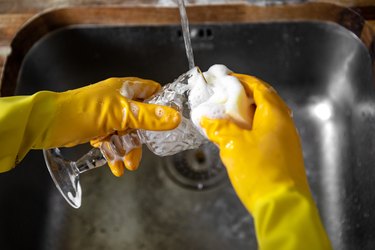
7. Run Soapy Water Through Appliances
Washing a blender or food processor is easy enough when you clean it right away, but these appliances get tough to clean once stuff dries on them. Next time, pour a little dish soap and water into the blender or food processor and give it a pulse. The fast-moving soapy water should remove a lot of the debris.
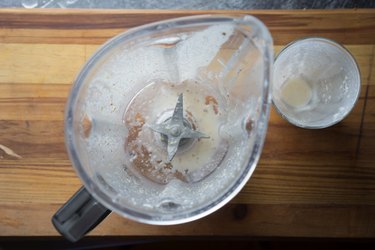
8. Make Your Own Scouring Pads
Scouring pads are one of a hundred little household items that you're forever replacing. Those costs sure do add up. Instead of buying new pads when yours are worn out, try making DIY versions. All you really need is a basic sponge, a mesh produce bag and thread to secure the mesh around the sponge.
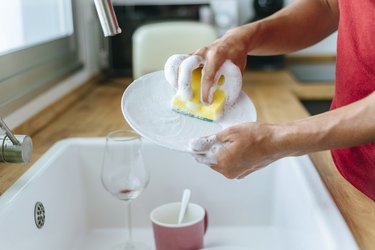
9. Sort Utensils As You Go
It's counterproductive to grab a handful of clean flatware and touch every fork, knife and spoon with your questionably clean hands, but that's exactly what happens when you have to put away a big batch of mixed utensils. Going forward, try sorting your flatware as you wash it. Separate the items into different compartments of your dishwasher or drying rack. When you're ready to put things away, all you have to do is grab all the clean spoons and move them to the right drawer.
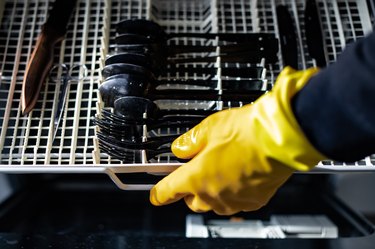
10. Keep Hot Pans From Cold Water
Sometimes, it's actually best to let dirty dishes sit for a bit before washing them. Pouring cold water over a hot pan causes something called thermal shock, and it can ruin pans of all kinds. So, when you pull something like a pot of pasta off the stove, drain the pasta and then set the pot aside to cool before washing it. This is one instance when it really does pay to procrastinate a little.






























